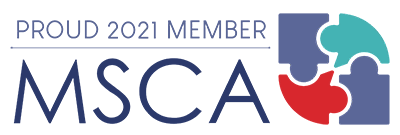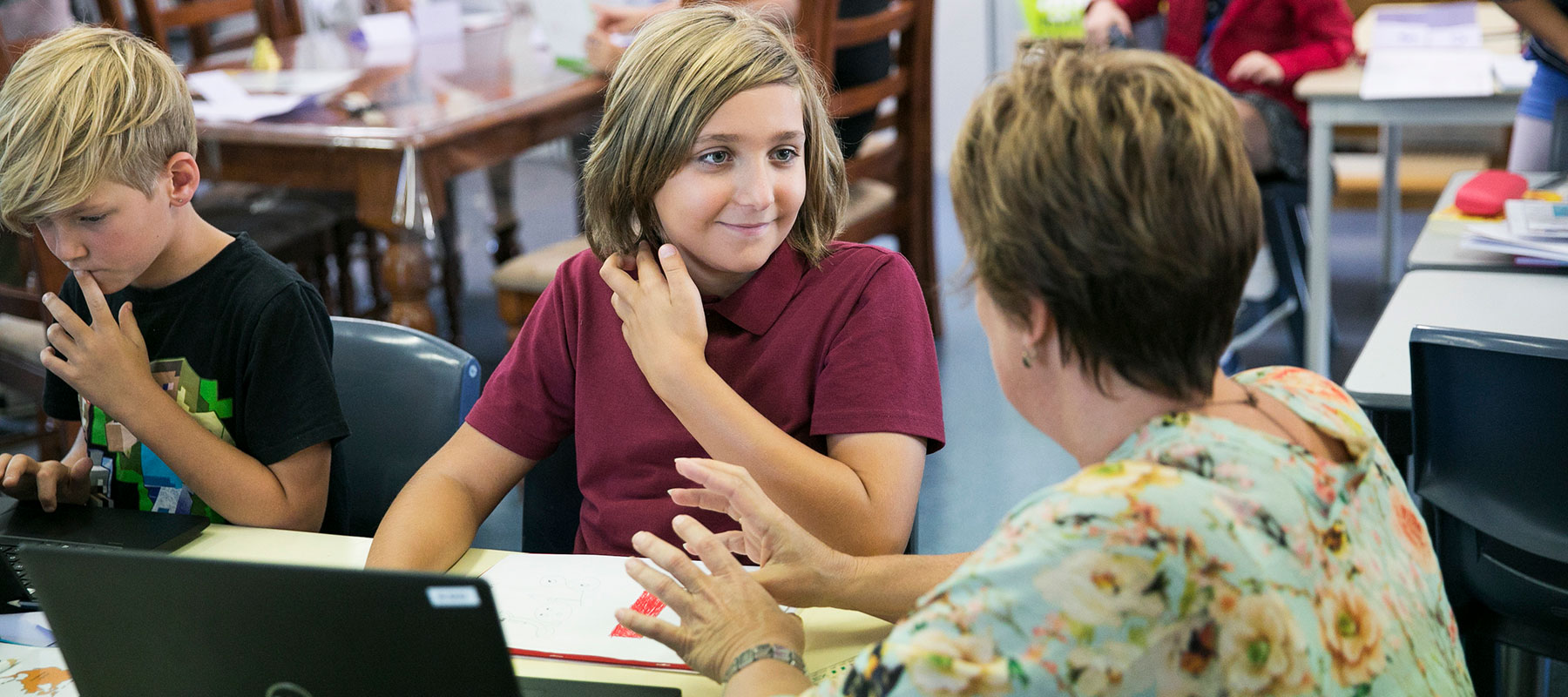Upper Primary (9 to 12 Years)
Leading Montessori Primary School In Perth
Rockingham Montessori School Upper Primary classrooms are led by an experienced, Montessori-trained teacher aided by an education assistant to prepare the learning environment.
Children transition to Upper Primary when they are socially and emotionally ready, around their ninth birthday, at the end of a semester. Children will stay in Upper Primary until they are twelve when they will graduate from Rockingham Montessori Primary School and transition to our High School campus.
In Upper Primary, children spend a lot of time carrying out their own research projects. This is often done in groups, sharing responsibility and developing communication and interpersonal skills. Research tools such as computers, books, and other texts are fully utilised, and the range of research topics widens as the children become interested in moral and social issues. At this age, ethics and justice are prime foci as students explore their place within society.
While the classroom is captivating and intriguing, children must experience first-hand the wider community. Maria Montessori developed ‘going out’ to connect children with the outside world. A true going-out trip is one that is conceived, planned, organised, executed, and followed up by the child. It is an expression of independence and responsibility.
Montessori on child development from 6 to 12 years
In the second plane of development, from six to twelve years, the child uses a ‘reasoning mind’ to explore the world with abstract thought and imagination. Children in the second plane of development are driven to understand the universe and their place in it and their capacity to assimilate all aspects of culture is boundless. Primary School studies include geography, biology, history, language, mathematics in all its branches, science, music, and art. Exploration of each area is encouraged through trips outside the classroom to community resources, such as libraries, planetariums, botanical gardens, science centrs, factories, or hospitals. This inclusive approach to education fosters a feeling of connectedness to all humanity and encourages their natural desire to make contributions to the world.
Cosmic Education
- How does one satisfy but not diminish the child’s mind?
- How does one bring order to vast knowledge?
- How does one capitalise on the child’s imaginative tendencies?
- How does one facilitate moral enquiry?
To meet these fundamental needs of the primary child Maria Montessori developed the concept of ‘Cosmic Education’. Cosmic education allows children to develop a sense of awe and gratitude for the universe, their role in humanity and the work of people who came before them. Cosmic education begins with the story of the universe, through which the child sees the inter-relationship of all things. This provides a context for the study of details. Studies are integrated and related to the whole. Different subjects are considered interconnected. For instance, the history of Egypt is tied to the Nile, to agriculture, to geography, to art, to writing, to geometry – as in the 3-4-5 triangle used to survey following the floods – to flora and fauna and to papyrus, the writing paper used to record the history…
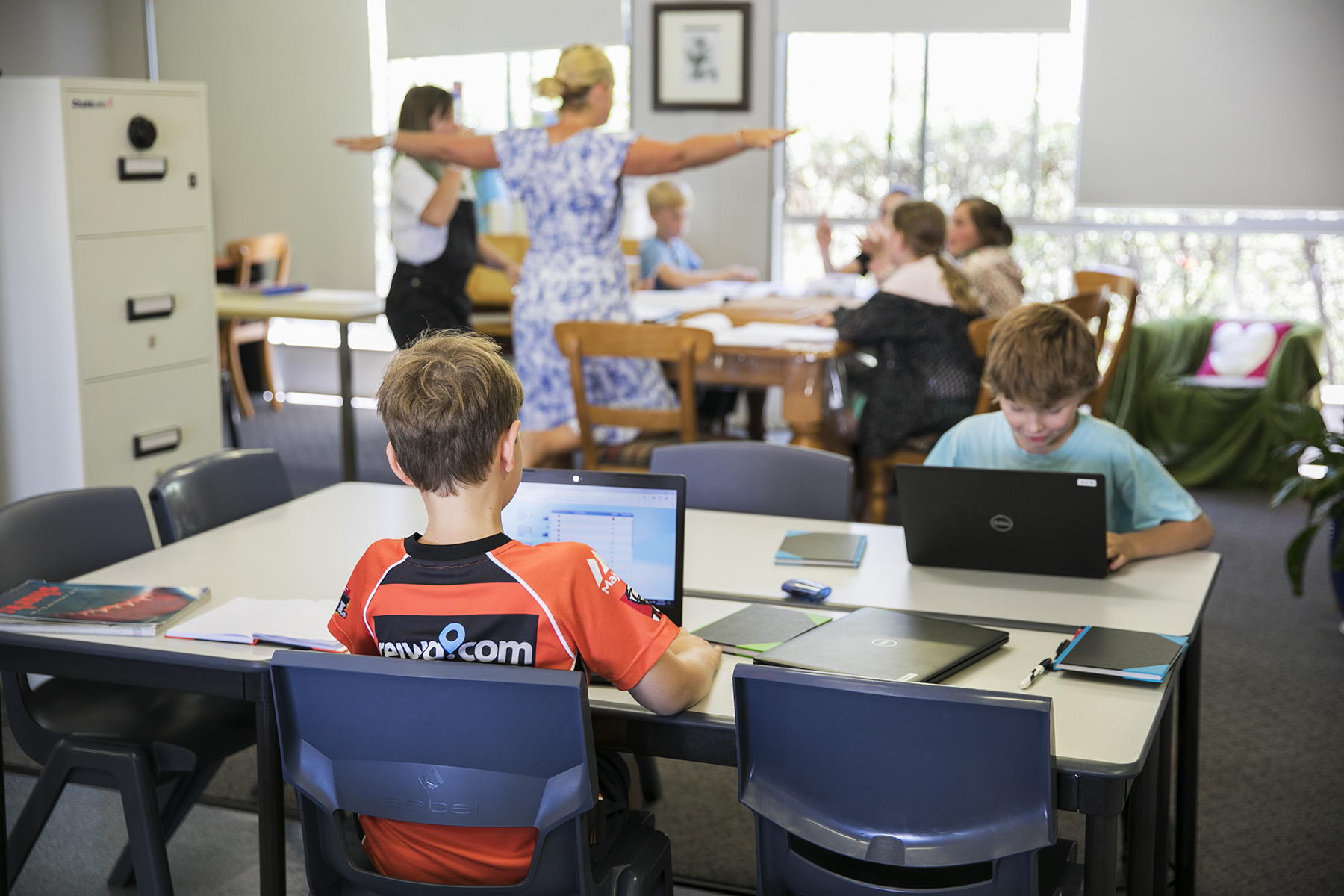
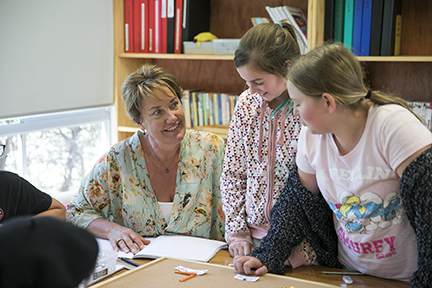
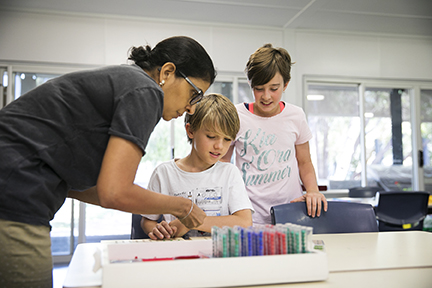

Infant & Toddler
Program
1 - 3 Years
Our Infant Toddler Program (Playgroup) is the ideal way for your family to experience the Montessori philosophy and practice, while providing toddlers with a gentle transition to the Children’s House.

Children’s
House
3 - 6 Years
Rockingham Montessori School has three Children’s House classrooms, named Dolphins, Penguins and Seahorse, reflecting our seaside location. Each is led by a dedicated and highly-trained Montessori teacher.

Primary
Program
6 - 12 Years
Rockingham Montessori School has three Lower-Primary classrooms: Jelly Fish, Starfish and Sea Lions, continuing our ocean theme. Teachers are Montessori-trained and work with the help of an education assistant.

Adolescent
Program
12 -18 Years
In Montessori’s third plane of development, from twelve to eighteen years old, the adolescent has a ‘humanistic mind’ eager to understand humanity and the contribution they can make to society.
